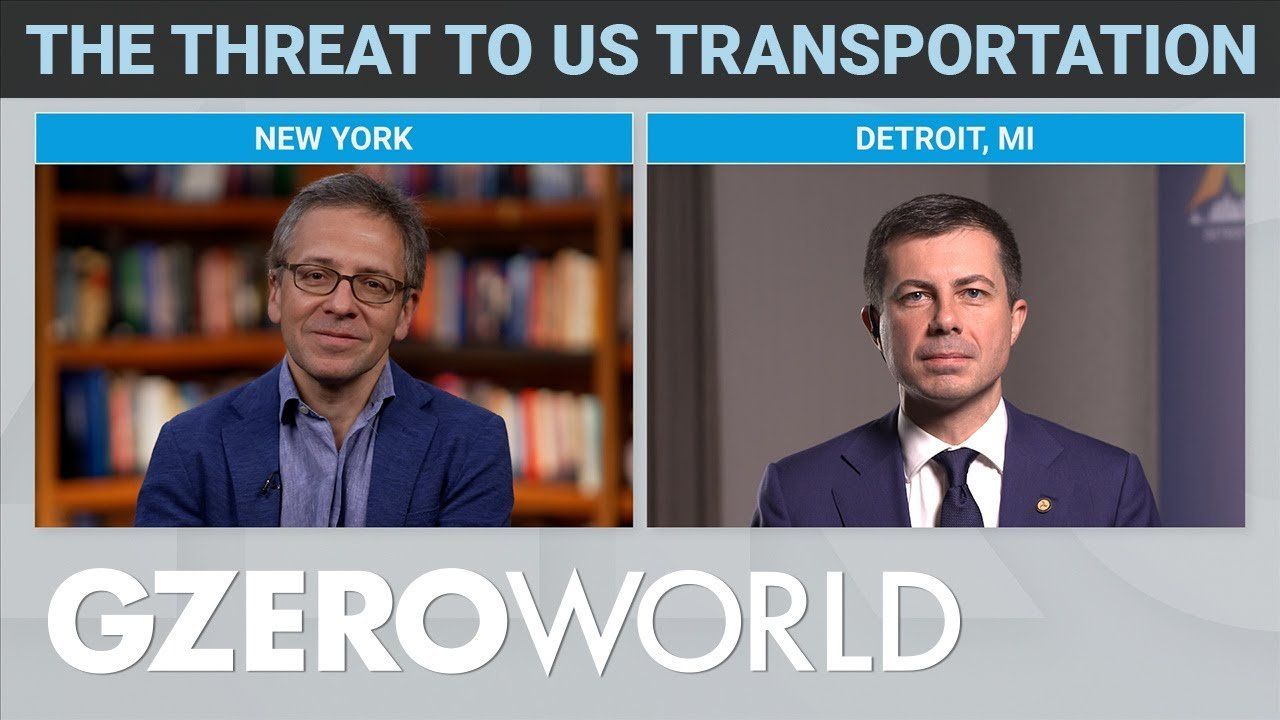GZERO World Clips
Pete Buttigieg explains: How the debt limit impacts transportation

Pete Buttigieg explains: How the debt limit impacts transportation | GZERO Media

Failure to raise the debt limit could be catastrophic for the US – and global – economy.
But a deal to lift the cap could also end up causing pain to many Americans. For example, the $4 trillion in spending cuts proposed by House Republicans would significantly disrupt US travel, Transportation Secretary Pete Buttigieg told Ian Bremmer on GZERO World. Republicans who voted to slash the budget should have to explain to the American people why they “might have to wait a couple more hours in a security line at an airport because of the cuts to TSA,” Buttigieg argues. "These are real impacts that are going to have a real effect on our everyday lives, not to mention on our economy."
Watch the interview in the upcoming episode of GZERO World, airing on US public television nationwide. Check local listings.
In this Quick Take, Ian Bremmer addresses the killing of Alex Pretti at a protest in Minneapolis, calling it “a tipping point” in America’s increasingly volatile politics.
Who decides the boundaries for artificial intelligence, and how do governments ensure public trust? Speaking at the 2026 World Economic Forum in Davos, Arancha González Laya, Dean of the Paris School of International Affairs and former Foreign Minister of Spain, emphasized the importance of clear regulations to maintain trust in technology.
Will AI change the balance of power in the world? At the 2026 World Economic Forum in Davos, Ian Bremmer addresses how artificial intelligence could redefine global politics, human behavior, and societal stability.
Ian Bremmer sits down with Finland’s President Alexander Stubb and the IMF’s Kristalina Georgieva on the sidelines of the World Economic Forum to discuss President Trump’s Greenland threats, the state of the global economy, and the future of the transatlantic relationship.